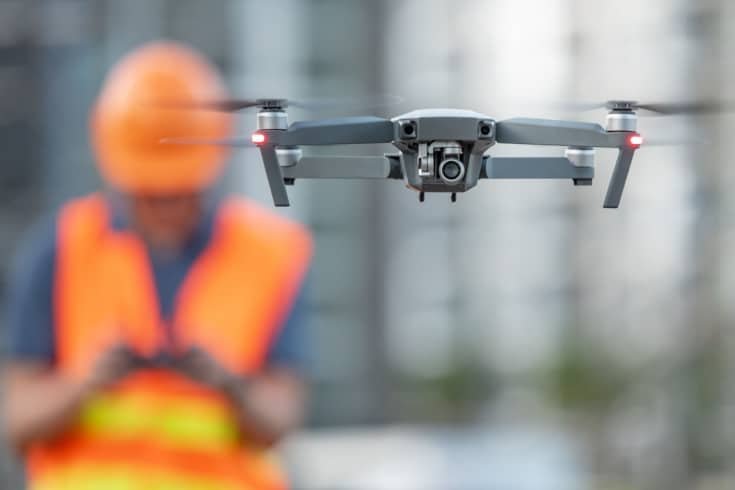'Transitioning Outsourced Work to Remote Work: Essential Contents for the Conclusion of New Contracts (Memorandums)'

Due to the impact of the novel coronavirus infection, “remote work” has suddenly come into the spotlight. With the increase in web services and free tools for working from home, remote work is expected to continue to expand.
However, when a contractor performs contracted work remotely under a business outsourcing contract between companies, a new contract (memorandum) must be concluded.
In this article, we will explain in detail each clause of the memorandum for performing contracted work remotely under a business outsourcing contract.
The memorandum in this article refers to a document that is concluded when the parties want to make some modifications or additions to the contents of the contract clauses that have already been concluded between them. In this case, we will introduce it as a document for adding “arrangements for performing work remotely” to the original contract that has already been concluded.
https://monolith.law/corporate/regulation-of-outsourcing-contract[ja]
About the Introduction of the Memorandum
【Memorandum】
Company A (hereinafter referred to as “Party A”) and Company B (hereinafter referred to as “Party B”) have agreed as follows regarding the “Service Contract” (hereinafter referred to as the “Original Contract”) dated ●●, and therefore conclude this memorandum (hereinafter referred to as “this Memorandum”).
Firstly, in the introduction of the memorandum, it is necessary to specify which contract among those already concluded between the contracting parties this memorandum is related to (linked to). Therefore, as in the example, we include the date of conclusion and the name of the original contract to specify which original contract this memorandum is related to.
About the Purpose Clause
Article 1 (Purpose)
This memorandum is intended to facilitate the smooth execution of the contracted work (hereinafter referred to as “the Work”) by the person in charge of the work in the business consignment at their home, in order to prevent the spread of the new coronavirus infection. The basic matters concerning the execution of the Work are defined in this memorandum.
In the purpose clause, the purpose of concluding the memorandum is described. This memorandum is concluded for the purpose of preventing the spread of the new coronavirus infection, and this is stated accordingly.
In the example of the clauses of this memorandum, it is assumed that the person in charge of the work in the business consignment will carry out the work at their home. Depending on the case, it may be necessary to change the description of the method of performing the work.
About the Clause on Remote Work

Article 2 (Remote Work)
Remote work refers to the practice where the person in charge of the contracted work performs their duties from their home, using various network lines, the equipment and devices provided or lent for the work (hereinafter referred to as “lent equipment, etc.”), and their own equipment and devices.
In contracts, definitions of each term may be included. In this clause example, the definition of “remote work” is also provided. The content can be modified according to the nature of the work and the equipment and devices used.
The reason for explicitly defining it is to clarify the meaning of remote work as envisioned by the contracting parties, thereby preventing disputes arising from differences in understanding. Even though remote work is a common term, it is significant to define it as it is a key point of this memorandum.
Provisions Regarding the Implementation of Remote Work
Article 3 (Implementation of Remote Work)
1. Party B shall, based on the request of Party A, comply with the following when conducting remote work:
1) The execution date and time of this work shall, in principle, be the business days and business hours specified by Party A.
2) As a work report, promptly report “start of work”, “end of work”, “start and end of breaks and movement”.
2. All expenses incurred by Party B in conducting remote work (including utility and communication costs, but not limited to these) shall be borne by Party B.
3. Party A shall notify Party B in advance when the period of remote work implementation ends.
This clause details the date and time, hours, report content, and expense burden when Party B’s employees conduct business via remote work, as well as notification at the end of the remote work implementation period.
In the above Article 3, Paragraph 1, it states “based on the request of Party A”, but it is also conceivable that Party B may have a request, so it may be possible to stipulate the requirements for implementing remote work separately from the above clause example as needed.
Also, in the above clause example, Article 3, Paragraph 1, Item 2, it is also conceivable to add “work content” as necessary to the “work report”. In remote work, it is difficult to see the work content on the contractor side, so there is a risk of disputes arising over whether work was done or not. In order to avoid such troubles, it is meaningful to stipulate the report of work content as a “work report”. To avoid leaving any lingering issues between the parties, it is necessary to thoroughly discuss what matters should be reported.
Regarding the Handling of Loaned Equipment and Similar Items
Article 4 (Handling of Loaned Equipment, etc.)
1. The Party B shall use the loaned equipment, etc., after conducting necessary inspections, and shall store and manage it with the care of a good manager. If the Party A separately stipulates precautions regarding the loaned equipment, etc., it shall be stored and managed in accordance with these precautions.
2. The Party B shall not transfer, sublease, change possession, provide as security, or use for purposes other than intended, any loaned equipment, etc.
3. When the Party B has completed the work or upon request from the Party A, the Party B shall promptly return to the Party A all materials (including copies and reproductions) that have been loaned or provided by the Party A.
4. If the loaned equipment, etc., is lost or damaged due to the intentional or negligent act of the Party B, or if it becomes impossible to return (including in cases of theft and loss), the Party B shall promptly report to the Party A by telephone or other means, and shall also report the details in writing, and shall follow the instructions of the Party A. In this case, the Party A may claim damages from the Party B, and the method and amount of compensation shall be determined through consultation between the Party A and the Party B.
This clause stipulates the management methods and degree of caution required when the contractor uses loaned equipment for the execution of work, as well as the response and liability for compensation in case of loss or damage to the loaned equipment.
Depending on the content of the loaned equipment, for example, if the contractor loses the client’s documents, it is assumed that the client may suffer damage due to the leakage of the content of the documents to the outside. Given that the contractor’s employees are working in private places such as their homes, it can be said that there is a need for a greater awareness of the management of loaned equipment compared to when working in the contractor’s office or designated places. Therefore, we have established a separate clause to regulate the loaned equipment.
On the Clause Regarding Security Measures

Article 5 (Security Measures)
1. The Contractor shall strive to ensure the security of the connection environment and loaned equipment, and to prevent damage caused by unauthorized access to the area where the work is performed, loss of loaned equipment, and computer virus infections.
2. In the event of an accident, the Contractor must promptly report to the Client.
This clause stipulates the obligation of the Contractor to make efforts to prevent damage related to the security of the hardware and network environment when performing the work, and the obligation to report in the event of damage. This is because the level of security in remote work may be lower than when performed at the Contractor’s office or designated location. For example, there may be cases where the Contractor’s employee’s computer, which is used for work, does not have security software installed, and it is generally easier to break into the Contractor’s employee’s personal home than the Contractor’s office. Depending on the situation, it may be considered to raise the level of obligation for the Contractor to ensure security beyond the obligation to make efforts, or to stipulate specific requests from the Client regarding security measures.
Conclusion
We have discussed the memorandum regarding the contract that allows for remote work in this article. The path to the end of the COVID-19 pandemic remains uncertain, but companies must continue to pay close attention to the health of their employees and overcome this challenging time.
If you are considering implementing remote work and have concerns or uncertainties about work styles related to remote work, or how to write contract documents for individual cases, we recommend consulting with a lawyer who has extensive expertise in this area.
Guidance on Contract Creation and Review by Our Firm
At Monolith Law Office, we provide a range of services, including the creation and review of various contracts, not limited to commissioned work. As a law firm with strengths in IT, Internet, and business, we offer these services to our advisory and client companies.
If you are interested, please see the details below.





















